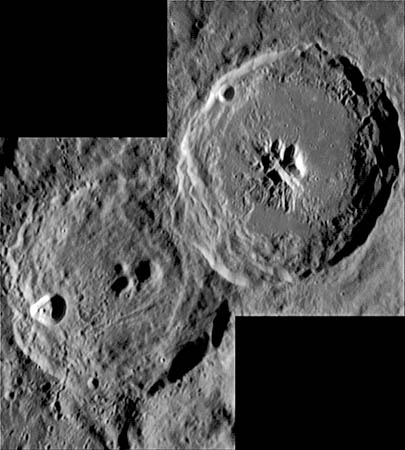Difference between revisions of "May 10, 2005"
| Line 12: | Line 12: | ||
</table> | </table> | ||
<table width="80%" border="0" align="center" cellpadding="8"> | <table width="80%" border="0" align="center" cellpadding="8"> | ||
| − | <tr><td><div align="center" class="main_sm" | + | <tr><td><div align="center" class="main_sm">Image Credit: [mailto:mwirths@superaje.com Mike Wirths]</p> |
</div></td> | </div></td> | ||
</tr> | </tr> | ||
Revision as of 23:25, 19 January 2015
Theo as You've Never See It
Image Credit: Mike Wirths
|
|
Theo as You've Never See It Theophilus is one of the lunar superstars - a magnificent crater that attracts the attention of observers and imagers. It is a complex crater like Copernicus, but slightly bigger (100 vs 93 km). Its terraces are not as well formed or as well preserved as those in Copernicus, but its central mountains are much bigger. The reason is totally unknown. In general, central peaks are larger in diameter and height in larger craters, but there is great variability. The peaks of the same size crater Cyrillus (bottom left) are smaller and more rounded, but who knows how much of that may be related to being pummelled by Theos ejecta. The flat, relatively smooth floor in Theophilus probably includes target rocks melted by the energy of the impact that were ejected nearly vertically. That they splashed back down is obvious from Apollo 16 images that reveal melt ponds caught in hollows immediately outside the crater and on terraces inside it. Technical Details: Tomorrow's LPOD: Imperial Image |
|
Author & Editor: Technical Consultant: Contact Translator: A service of: |
COMMENTS?
Register, and click on the Discussion tab at the top of the page.




